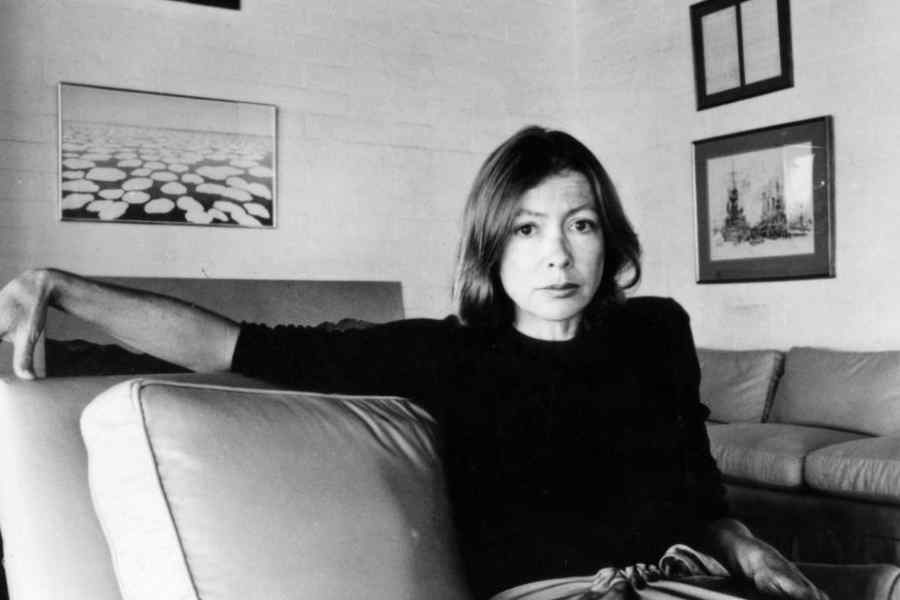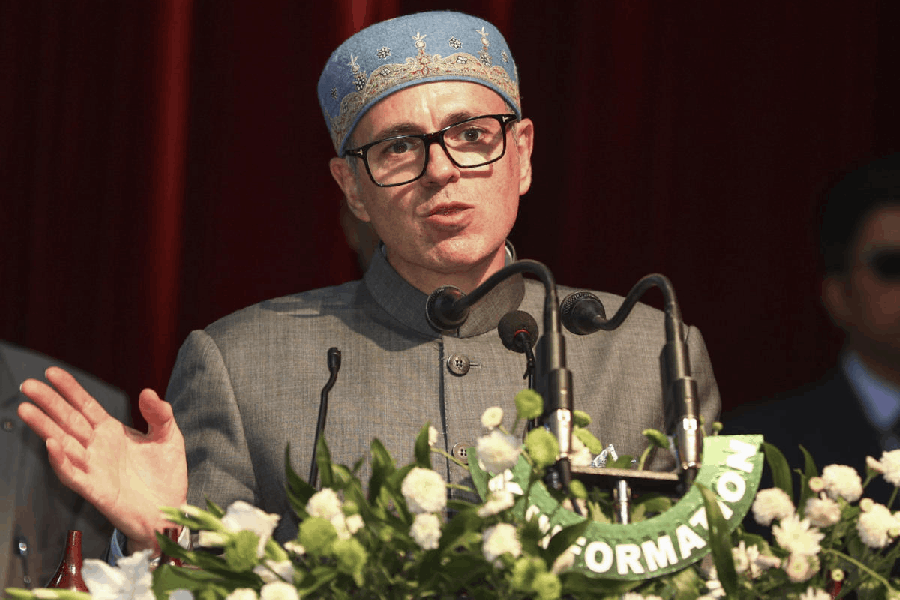THE WORLD ACCORDING TO JOAN DIDION
By Evelyn McDonnell
Fourth Estate, Rs 599
It would be erroneous to call this a biography in the traditional sense of the term. Neither a bildungsroman nor a collection of anecdotes or a curation of flashbacks, The World According to Joan Didion is a harmonious blend of tribute, memoir, noir (occasionally), essay, and love story. Therapeutic in quality and clinical in execution, every recounted episode in this book of 14 chapters, each named after an object connected to Didion, is an invitation to readers to navigate through an enchanted forest.
“Her writings were windows into her world, but she kept the doors locked. When she died, it felt like she took the keys with her.” McDonnell’s investment in exploring the human beneath the phenomenon that Didion was is sincere as she seems to be on a self-motivated mission to discover the hidden and the buried even without easy access to the ‘keys’ to Didion’s world. Thanks to the author’s astute and meticulous journey through the memory lanes and uneven terrains leading to several of Didion’s homes — Sacramento, Portuguese Bend, Los Angeles, Manhattan, Malibu, Miami, and Hawaii — and her examination of what her life entailed as a novelist, journalist, screenwriter, essayist, and — especially — as a woman, the readers are hand-held and given a guided tour of a landscape not often available for public view or consumption.
Moreover, in recounting some of the seminal works of Didion, McDonnell’s agenda is not to mindlessly populate the pages of the book with famous (or controversial) quotes from her articles, speeches, essays or novels. The engagement is on a deeper level. This comes across in her intention to highlight the essence of Didion’s legacy, spanning eighty-seven years, marked by wars, political conflicts, social crises, personal tragedies and much more.
In a bid to quench her own curiosity about Didion’s life, her growing-up years, the historical events that shaped her political ideology, her profound interest in human psychology, her tenderness toward pastoral beauty, her sharp criticism of capitalism, and her engagement with the stifled voices of marginalised and exploited communities, McDonnell (who neither interviewed nor met Didion) ends up discovering facets about her own self and life as well. And this is where both lives create a synergy as Didion — an omnipresent force — persuades McDonnell to sit back and soak in the remembrances of the decades gone by under the shade of an oak tree somewhere on the “eastern outskirts of” Sacramento where Didion was born and raised. All barriers between the personal and the public persona, the perfunctory and the empathetic, appreciation and scepticism, the outward ‘golden dream’ and the inner enlightenment, are shattered. What emerges is a palette that breathes on diverse shades of survival in a world where contradiction and coexistence can, in fact, strike up a deal drafted with the clauses of empathy, peace, and respect.
Each and every soul associated with Didion cannot stress enough on the literary icon’s uncompromised ability to listen more and speak less, “to refuse satisfaction”, to reject an overt reliance on rhetoric and expose imperial ambitions and propaganda, bring out a particular location’s character that informs people’s psyche and ways of living, her incessant drive to unearth lived realities of vulnerable communities, her willingness to be an observer first and to “show rather than tell.” In her desire to chronicle the life of one of the most adventurous, unapologetic, incisive writers of the bygone century, McDonnell has unconsciously, or consciously, woven a tapestry through the contours of her own self — past, present, and the imagined future. The World According to Joan Didion thus opens up, as if by happenstance, a universe where not just the writer but the reader too is given a chance to rummage through the reflections of their respective lives. Miraculously then, Joan Didion has done what she did best — gently and unassumingly moved the spotlight away from her.











